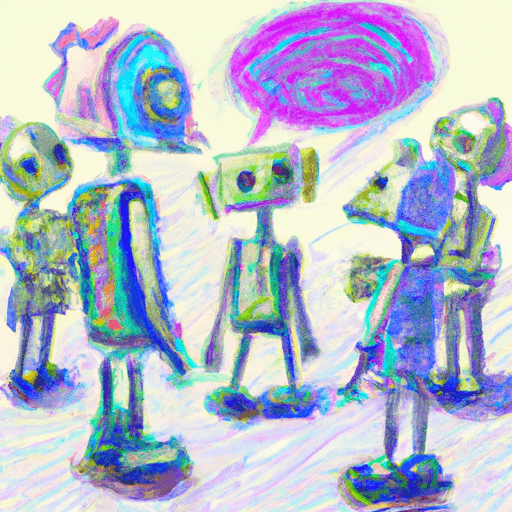Artificial Intelligence (AI) is transforming the world as we know it, and it is already everywhere in our lives, even when we don’t know it. From virtual assistants like to autonomous vehicles, AI products and services are quickly becoming an integral part of modern society. But how do people around the world view this technological revolution? Are they excited about the possibilities, or are they more worried about the implications? Stanford’s Human-Centered Artificial Intelligence (HAI) Index Report 2023 offers valuable insights into global attitudes toward AI, revealing a tapestry of diverse opinions, aspirations, and concerns.
AI: A Welcome Companion or a Cause for Caution?
Interestingly, there is a significant difference in how people across various countries perceive the benefits and drawbacks of AI. According to the 2022 IPSOS survey included in the report, a remarkable 78% of Chinese respondents agreed with the statement that products and services using AI have more benefits than drawbacks—the highest proportion among surveyed countries. This positive sentiment was echoed by respondents from Saudi Arabia (76%) and India (71%).
In contrast, Americans seem more cautious in their embrace of AI. Only 35% of sampled Americans agreed with the statement, placing them among the lowest of surveyed countries. This discrepancy in viewpoints is noteworthy and prompts us to examine the factors that may influence public attitudes toward AI. Cultural, historical, and societal contexts may play a role in shaping individual and collective perceptions. Not to put too fine a point on it, but Americans have a grand tradition of sci-fi parables about AI ending the world.
The Gender Gap in AI Perceptions
The data reveals another important dimension: gender. Men tend to feel more positively about AI products and services compared to women. They are more likely to believe that AI will make their lives easier, place their trust in companies that use AI, and recognize more benefits than drawbacks in AI products and services. Furthermore, a 2021 survey by Gallup and Lloyd’s Register Foundation found that men are more likely than women to agree with the statement that AI will mostly help rather than harm their country in the next 20 years. It raises important questions about inclusion and equity: for a technology that could be fundamental, do we really want an “it’s for boys” mentality to take hold?
Navigating the Future of Transportation: The Question of Self-Driving Cars
As AI continues to redefine our relationship with technology, self-driving cars have emerged as a topic of both excitement and concern. Everyone can appreciate the dream of kicking back and watching a movie in the privacy of your own car, while the AI handles the start-stop traffic jam traffic for you. Not to mention the potential for AI vehicles to eliminate those jams through coordinated, co-operative movement between cars on the road. Despite rapid advancements in autonomous vehicle technology, people worldwide remain unconvinced about their safety. In a global survey, only 27% of respondents reported feeling safe in a self-driving car. Americans, in particular, are cautious, with just 26% believing that driverless passenger vehicles are a good idea for society, according to Pew Research.
In light of these concerns, it is imperative for stakeholders to address safety and ethical considerations in the development and deployment of autonomous vehicles. A collaborative approach involving governments, industry leaders, and communities can ensure that self-driving cars align with societal values and safety standards.
A Spectrum of Hopes and Worries
As AI permeates diverse aspects of life and society, people’s expectations and anxieties vary. Among a sample of surveyed Americans, those who report feeling excited about AI are most enthusiastic about its potential to make life and society better (31%) and to save time and make things more efficient (13%). On the other hand, those who express concern are troubled by the loss of human jobs (19%), surveillance and digital privacy issues (16%), and the erosion of human connection (12%).
The Natural Language Processing (NLP) research community, integral to the development of AI, also has strong opinions on the matter. In a widely distributed survey to NLP researchers, 77% agreed or weakly agreed that private AI firms have too much influence, 41% advocated for the regulation of NLP, and 73% felt that AI could soon lead to revolutionary societal change.
AI is undeniably a powerful force that holds the potential to transform our world. It is no surprise that there are a multitude of opinions, often conflicting, on how we should use these technologies or even feel about them. People are new to commercial, hands-on AI, and going forward this is going to be a rapidly shifting area of public opinion.
(Note: The data and statistics in this post are sourced from the HAI Index Report.)





